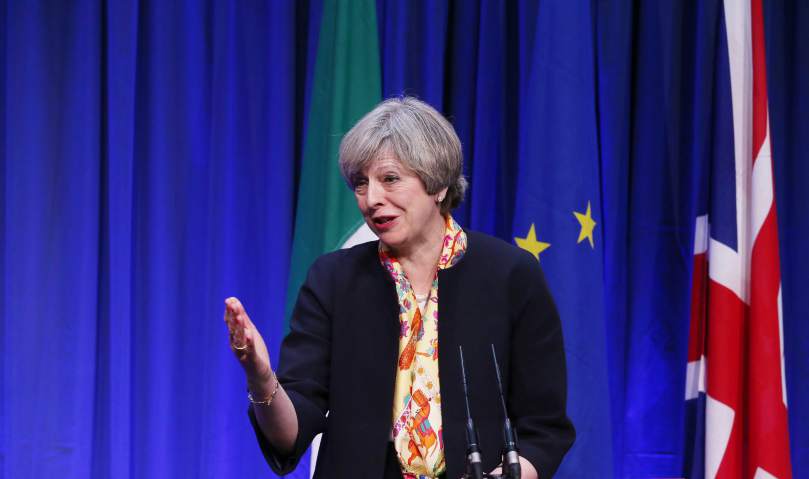The Brexit plot continues to thicken in the UK, with growing momentum for business lobbies desperate for the country to remain within the EU’s customs union after March 2019. Observers believe that Tory rebels who want to keep the UK in the customs union can block prime minister Theresa May’s (pictured) preference for full UK -- if they choose to vote against the government on the issue.
The customs union allows for tariff-free trade between member states. May’s Brexit negotiators are seeking agreement with Brussels on a ‘customs partnership’ model which would involve the UK collecting import tariffs and checking imports on behalf of the EU, by using IT to track goods’ final destination.
Another UK suggestion for a customs union alternative involves the minimisation of border checks and the implementation of a ‘trusted trader’ scheme for small businesses who, for example, trade across the Northern Ireland border. However, at the moment neither suggestion is washing with the EU.
Partial Customs Union
UK business lobby groups have been busying themselves in recent months by trying to find alternative ‘hybrid’ arrangements for the UK that might avoid hard borders and import tariffs. The UK’s Institute of Directors has offered one such hybrid solution, modelled after Turkey’s current trading agreements with the EU.
The IoD’s ‘partial customs union’ proposal would cover all industrial goods and some processed agricultural goods, removing the need for UK manufacturing companies to face ‘rules of origin’, which could render a tariff-free deal meaningless for many companies in these sectors.
Turkey enjoys access to the EU market for industrial goods in what was supposed to be a transitional step on the path to EU accession. Though EU membership is of the agenda, Turkey has become integrated into European production networks owing to the absence of a requirement for certificates of origin that otherwise hinder the free circulation of goods into and within the EU market.
According to Allie Renison, head of EU and trade policy with the IoD, more than half of the UK’s manufacturing intermediate inputs come from EU member countries, and they account for almost 70% of UK goods exports to the bloc. However, Renison accepts that the UK and Turkey are in different camps regarding any hybrid trading options with the EU.
“The UK is attempting to unwind some aspects of its economic integration with the EU, while Turkey’s ultimate aim is to go further in the opposite direction,” she says. “The two countries face a similar set of challenges in trying to maintain as many existing customs union benefits as possible, while increasing their levers of control as non-members of the bloc.”
A continued customs union for all industrial and some limited processed agricultural products would not remove the need for rules of origin entirely. And under a Turkey-type deal, some agri-food products would still have to prove origin to continue benefiting from a zero-tariff deal with the EU.
Renison also points out that a Turkey-like hybrid model would not avoid increased red tape around border controls. “As the Revenue Commissioners in Ireland made clear shortly after the referendum, the reappearance of basic customs formalities and procedures is likely regardless of the final nature of any agreement between the UK and EU.”
Component Parts
The view from UK manufacturers is that a customs union for all industrial goods is essential to ensure UK manufacturing competitiveness. Avoiding the application of tariffs for heavily-traded sectors with scores of component parts going into final assembly is seen as essential, particularly given how often these goods cross UK and EU borders. “Yet this is likely to become virtually unavoidable even under a tariff-free deal, should rules of origin apply,” says Renison.
While a customs union or preferential trade agreement must (following WTO rules) cover substantially all trade, the precedent exists in the EU-Turkey deal for the exemption of most agricultural products – which would not be good news for Irish food producers.








